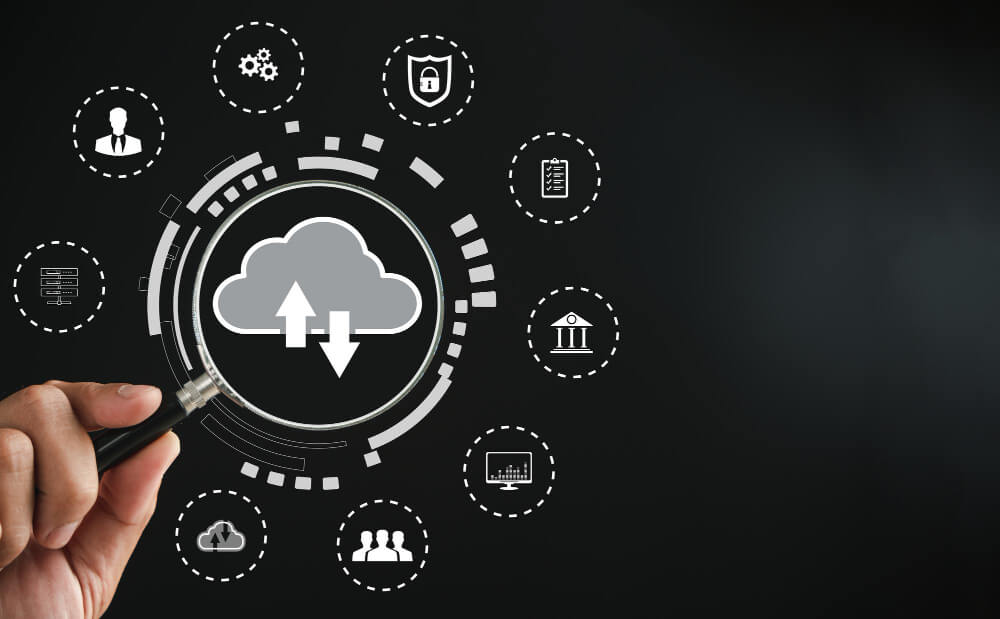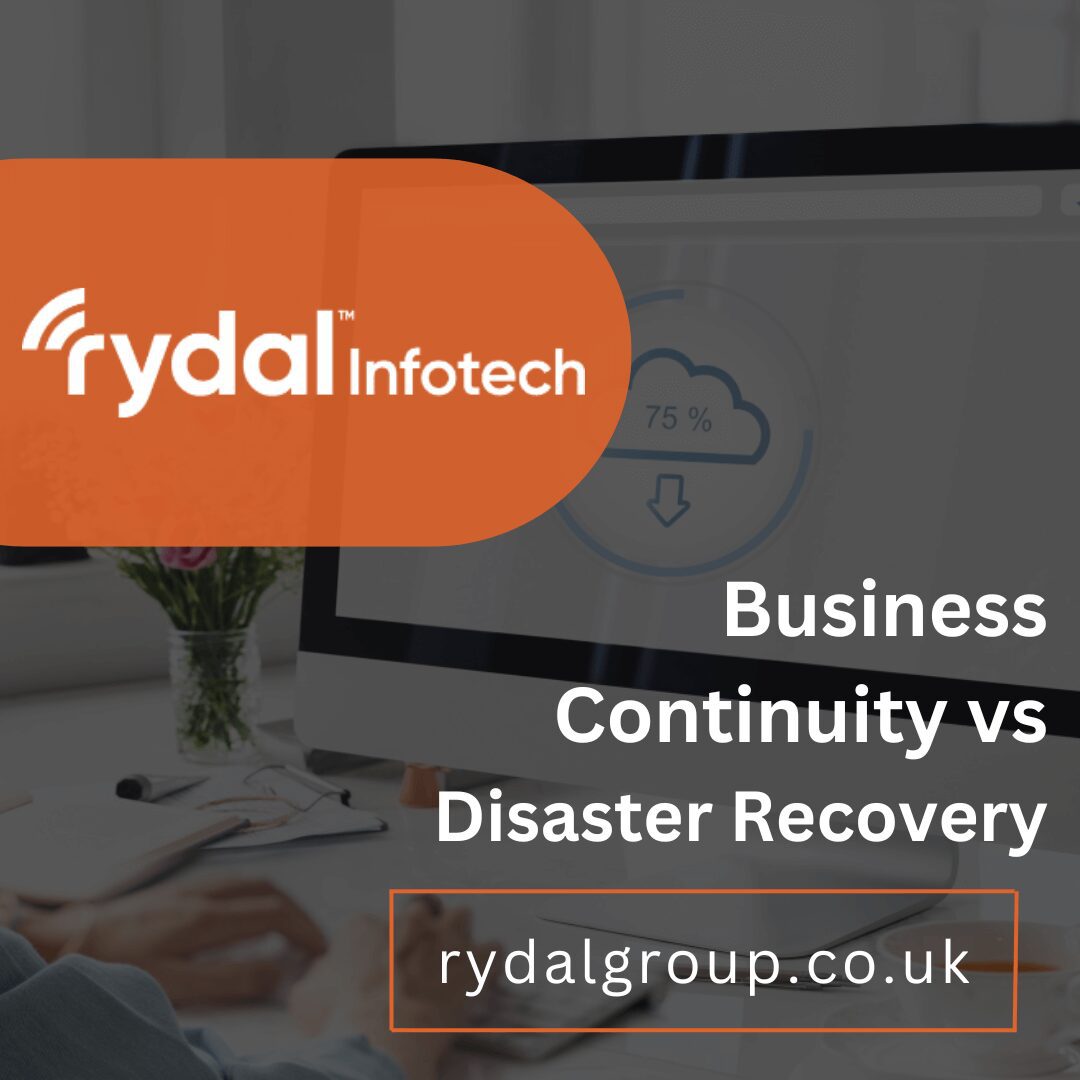As recent years have demonstrated with earthquakes, civil unrest, power outages, and even the spread of disease, a crisis is inevitable. These emergencies could prevent your business from conducting operations, causing financial loss.
Going through an emergency with no plan can be difficult. However, using business continuity can facilitate a quick return to operation. Alternatively, you could use disaster recovery to minimise loss of information and damage to your IT system.
This blog will explore business continuity vs disaster recovery and their differences so you can understand which is more important to your business.
What Is Business Continuity?
Business continuity refers to the set of strategies put in place to ensure your business remains operational during a crisis. These strategies target your essential operations until they can return back to normal. In addition, they define the specifics of who needs to keep working, where they’ll do these tasks, and how these changes will affect your business.
Furthermore, these strategies come together into a plan that will guide you during a crisis such as:
- Flooding
- Cyber Attack
- Pandemic
- Fire
What Is Disaster Recovery?

Disaster recovery is a concept that specifically focuses on safeguarding your IT system and data. In a disaster recovery plan, you detail the equipment you have, where you’ve duplicated the information on it, who will retrieve it, and how they’ll do so. Through this strategy, you’ll minimise disruptions during the crisis, allowing your business to return to normal operations promptly.
You can use this plan to repair your IT system and retrieve lost data in these situations:
- Power Outage
- IT Infrastructure Failure
- Cyber Attack
- Network Failure
- Electrical Damage
- Natural Disaster
The Difference between Disaster Recovery vs Business Continuity

Though both of these concepts ensure the resilience of your business, they’re different in the following ways:
1. Focus
Firstly, these two concepts differ in their focus. Business continuity has a broad focus that ensures your company stays operational. Therefore, it may disregard some aspects of IT systems in the short term to guarantee that customers can promptly receive their product/service.
Meanwhile, disaster recovery focuses on the technical part of your business. It may help you to return to normal operations. However, if your business doesn’t require the IT systems or the data on it for core, daily operations, then it might not help your business quickly return to normal.
2. Goal
Another difference between them is their goal. Business continuity aims to limit downtime and keep operating at a minimal level. It’s essentially allowing your business to enter a transition period whereby you stay financially viable until you can return to optimum performance.
Conversely, disaster recovery’s goal is to return your IT system and data to normal. With it, you can gain access to your lost data, reinstall software, reestablish your network, and replace your hardware.
3. Execution Timeline
A major difference between disaster recovery vs business continuity is the implementation timeline. While you should have both plans in place before a crisis, you’ll start implementing the disaster recovery plan first. Once you’ve created this plan, you’ll need to start backing up data. Yet with a business continuity plan, the implementation starts when you first notice the crisis.
When the crisis ends and your business returns to normal, you can stop implementing the business continuity plan. However, the disaster recovery plan has to remain in action for it to remain useful.
4. Scope
You can categorise these concepts by scope. Business continuity has a broad scope that encompasses dealing with any crisis that affects your business continuity. Meanwhile, disaster recovery only tackles emergencies related to your IT systems and data. Therefore, most disaster recovery issues will also fall under business continuity.
For example, let’s say there was a kitchen fire in a restaurant. It will affect the daily operations as employees may have incurred injuries and equipment and inventory may have damage. However, if the bookings, website, app, and accounting information were not damaged, it would only be a business continuity issue. Meanwhile, if there was a network issue that affected bookings, it would concern both of these concepts.
5. Risk Analysis
Lastly, they differ in the way they assess the risks your business faces. When you make a business continuity plan, you need to consider how different crises can affect your core functions and identify your vulnerabilities. Meanwhile, disaster recovery requires you to take note of the risks of your IT system and data storage.
Business Continuity Plan vs Disaster Recovery Plan: Which Does Your Business Need?

As you’ve now explored the differences between these concepts, it should be clear that you need both. On some levels, businesses tend to rely on technology. Therefore, forsaking the IT side of your business could affect your operations and even open you to penalties depending on your local laws. Similarly, you can’t prioritise your IT system and data over the operations that keep your business financially stable. So, business continuity usually takes precedence.
Yet, together, these concepts minimise your downtime and lower your financial loss. For example, take Cantey Technology’s crisis: A lightning strike caused a fire in their offices. While this company is in the technology industry, they used both concepts to stay operational. They had a disaster recovery plan that ensured they backed up their customer’s data. Meanwhile, their business continuity plan allowed them to temporarily move their offices to a different location.
Nevertheless, the level of importance of these plans could vary depending on what your operations focus on. For instance, as a law firm, you may feel that safeguarding your data is more important while as a fast food chain, you may prefer to focus on business continuity.
Conclusion
Now you know that the differences between business continuity vs disaster recovery stem from their purposes. Business continuity assures that your business remains somewhat operational until your crisis ends. Conversely, disaster recovery safeguards your IT system and data, allowing you to quickly return to normal operations.
Your business needs a plan to address both concepts. They’re both crucial in ensuring that your business remains resilient while you deal with disruptions. Otherwise, you’ll remain vulnerable to emergencies that could eventually cause your business to shut down. All in all, by implementing both of these concepts in your businesses, you can efficiently benefit from the safety they offer.

